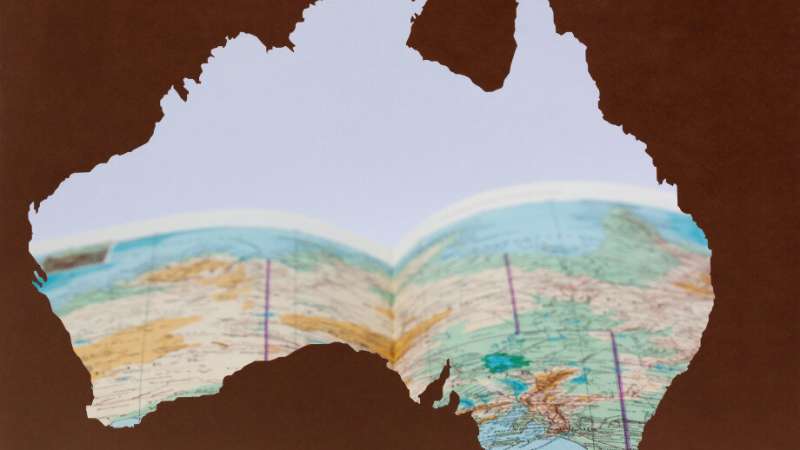Deep roots of Australia's geology revealed

A new study has shown for the first time how Australia's rich geological history is reflected deep below the Earth's surface.
Author of the study, Dr. Caroline Eakin from The Australian National University (ANU), said the Australian land mass is made up of different building blocks that fused together over 1.3 billion years ago.
"Australia is an old, stable continent," Dr. Eakin said.
"Australia's different building blocks are reflected on the Earth's surface, but it's been unclear to what depth these geological differences would be reflected below the Earth's crust."
Dr. Eakin used observations of scattered surface waves—known as Quasi-Love waves—created by distant earthquakes to study Australia's geological makeup.
"These Quasi-Love waves show boundaries deep within and surrounding the Australian continent that correspond to the same tectonic boundaries seen at the surface," Dr. Eakin said.
"This suggests these kinds of geological features are preserved for billions of years."
According to Dr. Eakin this new information about what's happening 100–200 kilometers below the Earth's surface indicates the deeper part of our continent is just as geologically diverse as the crust.
It is the most detailed analysis of this kind of data in Australia to date, taking into account over 2000 earthquake recordings made at seismometers across the Australian continent.
The study has been published in Communications Earth & Environment.
More information: Caroline M. Eakin, Quasi-Love wave scattering reveals tectonic history of Australia and its margins reflected by mantle anisotropy, Communications Earth & Environment (2021). DOI: 10.1038/s43247-021-00276-7
Journal information: Communications Earth & Environment
